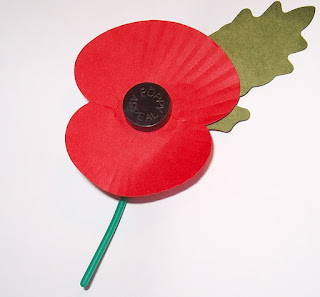Frederick Thomas Hitchcock
December 1897-19th January 1917
Frederick Hitchcock was born in the village of Grove in
Berkshire at the end of 1897 to Arthur Hitchcock and his wife Julia nee Barwick.
Arthur and Julia had married in Grove in 1883 and Frederick was their ninth
child. When he was born his eldest brother William was twelve and his sister
Ellen was ten. Then came three more girls, eight year old Beatrice, six year
old Emily and five year old Mary. The girls had plenty of babies to look after
as Frederick also had two older brothers, three year old Arthur and Percy, who
was two. After Frederick came two final girls Julia in 1899 and Florence in
1905.
Frederick was seventeen at the outbreak of war and living
at home with his parents at Grove. It is not known when he joined up but the
regiment he joined, the 7th Battalion, Berkshire Regiment, was raised in Reading
in September 1914 as part of Kitchener's Third New Army and joined the 26th
Division of the 78th Brigade. They did
not receive uniforms until the spring of 1915 and their equipment was lacking
too. However they trained in Wiltshire and Berkshire before embarking for
France in July 1915. In November 1915 the 26th Division left Marseille for
Salonika.
Greece had tried not to become involved in the war as,
while they had long been an enemy of Turkey, their King was pro German being
married to the Kaiser’s sister. A compromise was reached in which they agreed
to allow allied troops to land at Salonika in order to reach the fighting in
Serbia. However by the time the first soldiers arrived in October 1915, Serbia
had already fallen and Austrian and Bulgarian troops were on the Greek border.
The allies fought to defend Greece until the summer of 1917 when Greece
officially joined them.
The Berkshires were recorded at Senelle Ravine in October
1916 and were still there in mid-January 1917. It seems that the severe winter weather
just brought everything to a standstill and although different battalions
manned the forward trenches in rotation very little was happening.
The war diary of the 7th battalion for January
18th reads, “The day was very
quiet until about 1700hrs when the enemy fired about 10 HE (5.9) and 6 shrapnel
(probably 4.2) into W RAVINE. Our Trench Mortar fired 15 rounds into JUMEAUX
RAVINE (where the working was going on) with apparent good result as no more
working was heard. Our patrols heard wheeled traffic and shouting N of HILL 380
also slight working on MAMELON. Quiet night.”
The next day was similar “The enemy fired several HE shrapnel in
FUSILIER RAVINE and D8 between 0900-0940hrs. Casualties 2 OR killed. The Trench
Mortar from PETIT COURONNE was active throughout the day and fired about 40
shells on D1 and head of SENELLE RAVINE. Patrols heard working in JUMEAUX
RAVINE upon which the artillery and Trench Mortar fired, working was also heard
on HILL 380 artillery Vickers Gun turned on. Quiet night. Remarks. 1 OR to
hospital wounded, 1 OR returned from hospital.”
It is possible that one of those two ‘other ranks’ in the bombardment that morning was Frederick Hitchcock but it is also likely that he died of illness. Malaria, dysentery and other diseases were a huge problem in the area at this time. He is buried along with three other men who died on the same day at Karasouli Military Cemetery.
In Memory of
Private F T Hitchcock
23449, 7th Bn., Royal Berkshire Regiment who died on 19 January 1917
Son of Julia Hitchcock, of Grove, Wantage, Berks.
Remembered with Honour
 |
| Karasouli Military Cemetery |
Acknowledgements
www.1914-1918.net/salonika.htm
www.cwgc.org
www.thewardrobe.org.uk
